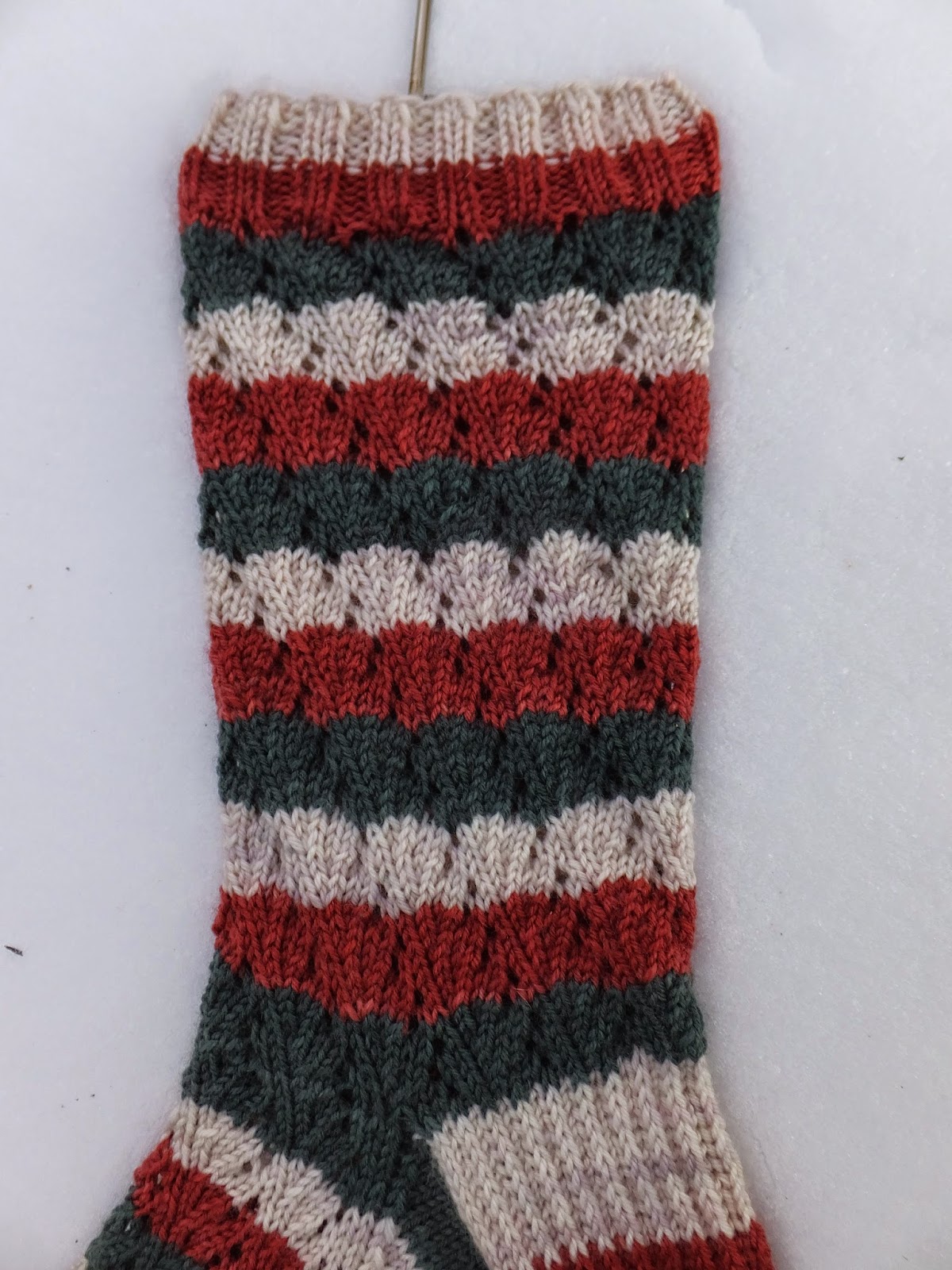I've been holding on this post for a long time. I gave the pillow to the birthday girl yesterday, so I can show you today!
One of my resolutions for this year was to make a pillow for myself. There were lots of knit pillows I like, I reasoned, and therefore I should just pick one and make it. It could live any number of places, and if it amused me half as much as
embroidered pillowcases (and even
here), it was an excellent use of time and materials.
The first step is to look at patterns. I quickly found one I knew I wanted to make, but not for me. It was the
Pillow of Sei Shonagon, and it was fantastic.
To make it, first you knit the front of the pillow. This is pretty boring. Plow through.
The pattern called for 3.25 mm needles and sportweight yarn. The yarnovers were supposed to yield 1/2" holes. I do not understand how this could possibly work, but clearly it has worked for lots of people (or Ravelry is filled with liars, a thought too terrible to entertain). It didn't work for me, so I used 4 mm needles and dk weight yarn.
The front gets blocked. Then you cut two pieces of muslin and iron fusible interfacing on each one. One piece becomes the back of the pillow, and one is cut into strips with writing on them.
The pattern indicates you should write on the strips before cutting them.
Listen to the pattern. Also, remember that you want all your words to be in between your light pencil marks. Do not, like some people, forget this on a couple of strips and start writing as if the lines were notebook lines that you could cross with the lower part of the letter g. If you do forget this, luckily you'll have enough fabric for some extra strips.
I used a fine tip fabric marker, and it worked just fine. I was okay with the fact that it wasn't going to look perfect. I do not have pretty handwriting. I have small, functional handwriting. My handwriting is the nerdy girl at the Spelling Bee; she knows the power is in the words rather than in the appearance of the words.*
I highly recommend you use a rotary cutter and mat to cut the strips. I borrowed my mom's.... awhile ago.... and still have it. I really should give it back to her and buy my own.**
I experimented with the width of the strips of muslin. I found that for my fabric, the 1/2" were too wide and 1/4" were too small. I split the difference and cut the strips at 3/8".
I threaded the strips through using a safety pin stuck through the end of each strip. I tried various other ways, and the safety pin was easiest.
You can thread the strips through the yarnovers randomly. You will not be shocked to hear that I wasn't excited about random. Instead, I tried to get as much of each word to show. It ended up looking random-ish, and you can read it better.
The prayer of St. Francis is an important prayer to one of my best friends, and I love that this pattern showcases it in such a special way. I tried to write the negative words as small as I could and the positive words in large, spread out capitals. I wanted those positive words to be the ones that jumped out at you from the pillow.
Once the strips were woven in, I stitched the ends to the wrong side just to make sure they weren't going to slide or pop out.
To connect the pillow front to the muslin/interfacing back, I used the overcast stitch from
these instructions. I stitched around three sides, inserted the 12" x 16" pillow form, and then sewed the fourth side closed. I'm sure there's a name for the stitch I used for that, but I don't know what it is. It reminded me of the mattress stitch, if that makes any sense with one side being muslin fabric instead of knit. I'm waving my hands around helpfully illustrating it right now.
You're welcome.
I love it. I'm thrilled with the way it came out. I'm thinking about making one for me with some Buddhist texts.
*
At least, that's what I tell myself.
**Since I wrote this post months ago, I now am the proud owner of my own set. However, I still have my mom's at my house. Baby steps.




















































